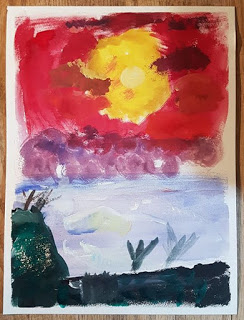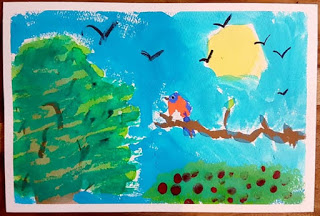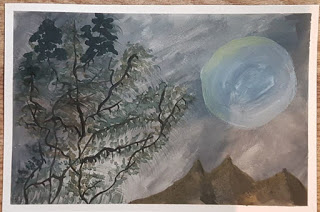Yesterday I gave a talk with this title at Nottingham Philosophy’s departmental colloquium. The post below isn’t a transcription of the talk but it’s the notes I wrote up on the train down which I mostly followed when speaking. I’m reproducing the notes here unchanged, not because I didn’t get loads of useful feedback from the Q&A, but because I don’t have the time to amend/augment it now, and in any case I’m planning to take this and try to turn it into an actual journal paper.
I’d like to thank Matthew and the rest of you for the invitation to come give a talk, because it gives me an opportunity to explore some things that I spend a lot of time thinking about but which I feel like we (as a profession) spend very little time talking about – either with each other or with our students. I know from Matthew and Ian that Nottingham is a very open and pluralistic department, so I wanted to do something a little bit different. This is going to be more of an interactive exercise where I get you guys to think reflectively about a bunch of stuff and then share your thoughts with each other and with me. It’s primarily selfish in nature: I want to get better at this, so I want to get as much different input as I can.
What is philosophy?
- Is it content?
Is it about who our predecessors are, and what they thought? Is it names, dates, influences, concepts, theories, questions, applications, problems, paradoxes? [If it is, what distinguishes philosophy from history of philosophy?] Is it about investigating fundamental reality?
- (2) Is it method?
Or is it method? Can any topic be philosophical so long as we apply certain kinds (the right kinds?) of methods to it?
What are the methods? Formal logic; informal logic; concept analysis; phenomenology; thought experiments; etc.
One needn’t place themselves firmly in one camp or the other – it’s possible to take any position on the spectrum between these two extremes, and probably most philosophers find themselves somewhere in the middle. But if hard pressed to come up with a means of excluding philosophy from non-philosophy, each of you will end up favoring one side or another.
Why is it important to know where you stand on this issue? It’s because it relates to another topic, namely:
What are we teaching when we teach undergraduates philosophy?
- Is it philosophy?
- Is it how to be a philosopher?
These are not quite the same question as the previous question, but if you say the answer is (3) then whether you take (1) or (2) will make a difference.
Think back to your own undergraduate career. What did you learn? What courses were you required to take? In the US, I had to do history of ancient and history of modern; I had to take at least one ethics course; I had to take at least one logic course. For the rest, I had choice, but the classes I took tended to focus on particular areas/subfields/figures in philosophy: Frege, Russell, Wittgenstein; philosophy of language; metaphysics; epistemology; philosophy of math. As I got higher up (and started taking grad classes) I got focused topics like compositionality and vagueness and logicism. But there was a very clear sense that we were learning who the important figures, themes, concepts, developments in philosophy were. In only one case did I get the feeling that my professor was teaching me what he was teaching me because he thought it was right (Terry Penner doing Plato was amazing.)
If there was an expectation that we would learn how to be philosophers, it was that this would fall out of reading and seeing how the great philosophers did philosophy. (This is, if you think about it, an interesting pedagogical assumption. Would we expect people to learn how to become engineers by reading/seeing how other engineers do engineering? Would we expect people to learn how to write fiction by reading/seeing how other authors write fiction? It’s a pedagogical technique that seems more appropriate in some cases than in others, and not appropriate across the board: So we must ask the question, “Is it appropriate for philosophy?”)
Does anyone else’s experiences differ from mine?
Anyway, the takeaway I took from this, as a student, is that this is what I was supposed to teach my own (undergraduate) students – that there were certain figures, concepts, disputes, etc. that any student having gotten a philosophy degree should come away with some degree of knowledge/familiarity with. (Let me just say as an aside here that this is where questions of canon come in…questions I’m not going to talk about so much, but not because I don’t think they’re important.) So if I was teaching philosophy of language, I should teach people about Frege/Sense/Reference; Russell/Donnellan/Kaplan/definite descriptions; Kripke; possibly Geach. Maybe at a higher level I could teach semantics, and compositionality, and theories of truth.
That’s what I should teach…but what I really wanted to teach was all the ways in which philosophy of language gets fiction wrong, and how to deal with lies, and what do we mean by “meaning” and “nonsense” and “meaningless”, and the problems fanfiction causes. But if I did that, then I’d have to give up on giving them the broad foundation in the historical debates and developments – there simply isn’t enough time.
But what if what we were really supposed to be doing was teaching students how to do philosophy or how to be philosophers?
Then all the things I wanted to be teaching them and talking to them about, I could. But if that’s what our goal is, then I think for the most part, we don’t do a very good job at it.
In my capacity as director of undergrad dissertations at Durham, the biggest thing concern I’ve seen over the years is that students don’t really know how to come up with dissertation topics. They look at the grand topics they’ve covered in their classes – the problem of evil, why is there something rather than nothing, what are numbers, etc. – and worry (quite rightly) that (a) they can’t come up with a grand topic like this; (b) if they do, they won’t be able to come up with an original contribution; (c) if they do, they can’t adequately discuss it in 12k. Or, they look at the sorts of essay topics they’re given in their classes or exams, and try to come up with something that sounds like that, and invariably end up with something clunky, awkward, and not very much fun.
My first experience with teaching (UK) students how to come up with their own questions was a few years ago when I taught a 2nd year course on Language, Logic, and Reality. I talked with the other person running the module and we agreed on a plan. The course had one formative paper and two summative papers. The formative paper, we would give them one question – everyone had to write on it. (It tied back to the very first lecture when I wrote three quotes up on the board – one in medieval Welsh, one in Sindarin, and one in Linear B. We asked them whether the quote in Linear B was meaningful, and why/why not.) The second paper we had around 7 pre-set questions students could choose from. But their final paper, they had to come up with their own topic. We told them this at the very beginning of the year, and provided a lot of “and this would be an EXCELLENT topic for your final paper” during lectures and discussions. We also arranged for my students to talk to the other lecturer to get their questions vetted, and vice versa, so that no one ended up picking something unreasonable for 3000 words. These final papers were across the board a much higher quality than the other ones.
But I can’t recall how many people I had in my office telling me things like “I didn’t know that I could talk about X in philosophy” or “Is this philosophical enough?” (Those two words are the bane of my existence). The worry whether something is “philosophical enough” connects to a concern that philosophy is demarcated by its subject matter, rather than its method, and that if one wants to talk about something in a philosophical context one must relate it back and anchor it in that subject matter. Whereas if one things that philosophy is a matter of method, then anything can be philosophical enough. It was working with students that convinced them that method is the way forward, and that method is what we should be teaching them, and what we should be teaching them explicitly.
(Side note: As a graduate student in the US, I remember being utterly baffled how my compatriots wrote journal articles. How did one come up with an idea that was suited to an article? I didn’t have much problem writing seminar papers, but journal articles seemed a very different thing, and not once did I get any explicit guidance as to what the difference is or how I should approach one vs. the other.)
So how do we teach students to ask questions? Well, here’s how I teach them:
When students are in my office wondering what to write their dissertations on, I have a surefire method of finding them a topic that excites and interests them. First, I ask them what interests them outside of philosophy. What do they read, what do they listen to, what do they watch, what do they talk about with friends, what are their hobbies? [Only once did I have a student tell me he had no hobbies.] Then, I ask them what interests them in philosophy – is it ethics, is it metaphysics, is it epistemology, is it language/logic? That is…are they interested in what is right? What is? What we know? How we say true things about it/draw inferences about it? Finally, I ask them: What’s in the intersection. There’s your thesis topic.
But that just gets a topic. How does one know what to say about it? These are the questions I have them go through:
- What do you want to know?
- What would count as an answer to this question? How are you going to discriminate between things that answer the question and things that don’t?
- What would count as a good answer to this question? How are you going to discriminate between competing answers? What are your foundational principles, the things that you cannot give up? What is the purpose of this answer (are you looking for something functional, moral, epistemological, etc.)? State these at the beginning of what you are writing, as part of your motivation.
- Then, once you’ve answered the question…who cares? Why does it matter? What has changed as a result of having this answer? What must change as a result of having this answer? Does having this answer affect our behavior? Does it affect what philosophical position we must adopt to remain consistent? Does it change the philosophical landscape by either removing or adding possible positions? What difference does it make?
These are, at the heart of it, the questions I think philosophers should be asking, whatever other questions they ask. Do not ask “Why is there something rather than nothing?” or “What is a fact?” unless you have some idea of what could possibly count as an answer, and some idea of what could possibly count as a good answer. And when it’s boiled down to this, these are fairly straightforward things to teach students to ask.
Answering them, on the other hand… is another matter altogether.









